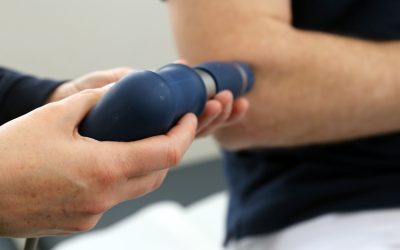Fat Dog Mendoza is a cartoon dog – an obese, round ball of a dog on stubby legs. Food is his life. When the citizens of Neighborhood X are asked how the town should spend a windfall of cash, Fat Dog declares: “We could open a food museum.” Little Costumed Buddy responds, “You’d just eat all the exhibits.” In a cartoon world, an obese crime-fighting dog is fodder for funny business. But in the real world, a dog’s obesity is no laughing matter. Pet obesity is a growing health problem and one that can lead to type 2 diabetes, osteoarthritis, high blood pressure, and kidney disease.
The most recent national survey of the Association for Pet Obesity Prevention (APOP) reports that 53 percent of adult dogs are overweight or obese. That’s a lot of fat dogs – more than 41 million, in fact. Owners who over-feed their dogs and give too many treats are pushing them into dangerous health conditions and shortened lives. As Dr. Steve Budsberg of APOP says, “No animal goes to the refrigerator or the pantry and helps themselves. We enable our pets to get fat!” If dog owners are responsible for the overweight condition of their dogs (rather than illness or disease), owners can be the change agents, as well. By giving their dogs more nutritious food, more exercise, and fewer high-calorie treats, owners can improve their dogs’ diet while improving their quality of life.
Think about this: A 20-pound dog needs only 500 total calories a day. Table food and abundant treats undermine a dog’s nutritional balance. Dog treats are deceptively small but are often loaded with calories. One popular dental chew for small and medium dogs has 277 calories, which is more than half of a small dog’s daily calorie needs. According to the APOP survey, “Feeding a 40-pound dog a pig ear is akin to a human drinking six 12-ounce cans of soda.” A dog getting several high-calorie treats a day will start to pack on the pounds. Dr. Ernie Ward, founder of APOP, advises owners to give single-ingredient snacks or offer animal-safe fresh vegetables, such as string beans, broccoli, baby carrots, or other crunchy veggies.
As to the choice of a dog’s daily food, the best source for advice is the vet at your Austin animal clinic. If you live in Austin, Texas, the vet is likely to offer nutritional counseling, a growing area of the veterinary profession. Nutritionists at animal clinics work with veterinary patients to determine the best diet for overweight pets or those with other medical conditions. Many Austin animal clinics sell prescription and specialty foods and treats for their animal patients who are overweight.
Obese pets benefit from a thorough physical examination at their Austin animal clinic to determine if weight gain is related to a health issue or overeating. Veterinarians are dedicated to helping you make changes that will improve your dog’s quality of life – and maybe even save it.
For over 20 years, the veterinarians and staff at Austin Animal Medical Center have helped their patients achieve optimum health. When your pet needs a checkup or dental, surgical, or diagnostic services, our Austin animal clinic invites you to become part of their growing family. Austin Animal Medical Center is located at 1536 E. Anderson Lane, Austin, TX 78752. To contact us, call 512.832.4119, email contact@austinanimed.com, or visit http://www.austinanimed.com.


